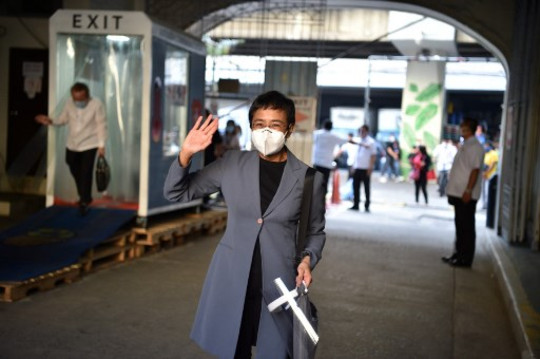Rappler’s chief executive officer and former Rappler writer Rey Santos Jr were convicted by judge Rainelda Estacio-Montesa in the Manila Regional Trial Court (RTC), sentencing Ressa and Santos to jail on June 15. The charges were filed by Wilfredo D Keng relating to a story published on the Rappler website in 2012 linking Keng to the impeachment of former chief justice Renato Corona. Although the court first heard the case in 2017, the National Bureau of Investigation dismissed the case because it was outside the statute of limitations. In 2018, the justice department made an exception, allowing the case to run.
Both Ressa and Santos are entitled to post-conviction bail as the conviction is appealable to the Supreme Court. The court ordered the two to pay PHP 200,000 (US 3,977) in moral damages and an additional PHP 200,000 in exemplary damages. The court found Rappler to have no liability in the libel case.
Ressa has faced repeated legal harassment from the Philippines government. Including the cyber-libel case, Ressa has 11 ongoing legal disputes, including another libel cases and two criminal cases alleging foreign ownership in Ressa’s companies and tax evasion. In 2018, Duterte’s government revoked the operating license of Rappler, suggesting the company was American owned.
NUJPsaid: “This is a dark day not only for independent Philippine media but for all Filipinos. The verdict basically kills freedom of speech and of the press. But we will not be cowed. We will continue to stand our ground against all attempts to suppressour freedoms.”
The IFJ said: “The court’s judgement is a blow to democracy, journalism and freedom of expression around the world. The case against Ressa and Santos highlights the ongoing use of the rule of law by authoritarian governments to silence the media and hold politicians accountable. The Philippines must remember, democracy is held up by a fourth pillar, journalism; any attempt to prohibit freedom of expression undermines the democratic cohesion that once existed in the Philippines.”

